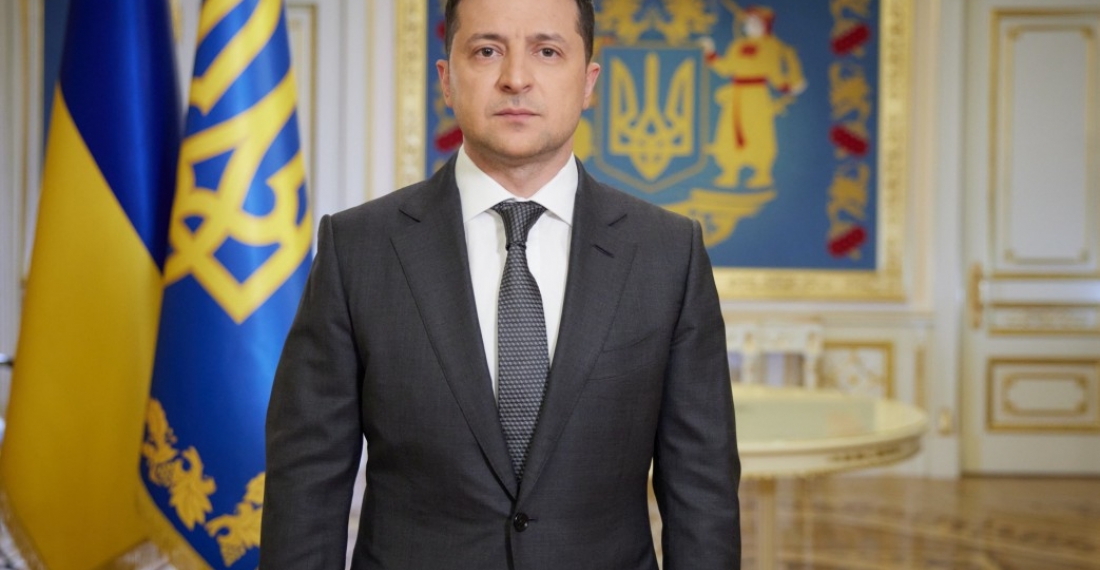Amidst increased tension on the Ukraine-Russia border, Ukrainian President Volodymyr Zelensky invited Russian President Vladimir Putin to meet him in the eastern Donbas region where renewed fighting between government forces and Russian-backed separatists has erupted.
In a 13-minute video address on Tuesday (20 April), Zelensky told Putin in the Ukrainian language that he wants to end the seven-year conflict in the Donbas region. He also stated that while an escalation was not inevitable and Kyiv would not strike first, Ukraine of 2021 was prepared for war.
Ten minutes into his speech, Zelensky switched to the Russian language and addressed Putin directly: “Once, the president of the Russian Federation said ‘if a fight is inevitable, you need to strike first.’
The war in eastern Ukraine has claimed the lives of 13,000 people, according to the United Nations. Despite several ceasefires, the conflict repeatedly flares up.
Watch the full speech by the President of Ukraine on the security situation in the country below:






